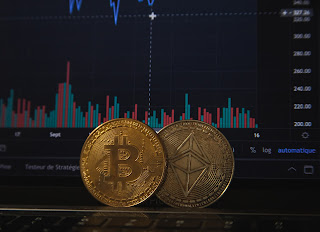In recent years, the landscape of cryptocurrency exchanges has witnessed a significant shift. The once prevalent "no KYC" (Know Your Customer) exchanges, where users could trade without identity verification, are becoming increasingly rare. This transition has raised concerns, especially for residents of the United States who face limited options when it comes to trading cryptocurrencies. In this article, we will delve into the implications of KYC enforcement, and its role in user safety, and explore alternative avenues for individuals who wish to navigate the crypto space without the constraints of geographic regulations.
The Rise of KYC and AML Regulations
When cryptocurrency exchanges initially emerged, back in 2017 and before, the requirement for identity verification was not as common. Anyone could create an account and start trading immediately. However, the scenario has changed drastically due to evolving laws and regulations, particularly in the United States. Authorities have cracked down on money laundering activities and imposed stricter measures on platforms to verify the identities of their users. Failure to comply with KYC and Anti-Money Laundering (AML) laws can lead to legal repercussions for exchanges.
The Impact on US Residents
For US residents, the enforcement of KYC regulations has created obstacles in accessing a wide range of crypto exchanges and products. Due to the stringent regulatory environment in the US, international exchanges often limit their offerings to American users. Consequently, US residents face limitations in coin selection, investment options, staking, and perpetual trading. The disparity between the opportunities available to international users and those restricted by residency has been a cause for frustration among US cryptocurrency enthusiasts.
Exploring Decentralized Finance (DeFi) and Alternative Solutions
While the landscape may seem challenging for US residents, there are alternative avenues to explore, such as decentralized finance (DeFi). DeFi offers a world of opportunities for crypto investors, providing access to various protocols and applications without the need for identity verification on centralized exchanges. By utilizing a crypto wallet and having the appropriate coins, like Ethereum, individuals can connect to DeFi platforms and enjoy greater freedom in their trading activities. However, it's essential to note that DeFi comes with its own complexities and risks, and users must exercise caution and conduct thorough research before engaging in these decentralized systems.
Legal Considerations and International Options
For those seeking more accessible options, becoming an accredited investor by meeting certain financial thresholds, setting up an international business, or obtaining residency in a crypto-friendly country are potential paths to consider. However, these routes may require significant financial resources and may not be viable for all individuals. It is crucial to explore the legal implications and requirements associated with such alternatives before pursuing them.
Final Thoughts
The shift towards KYC enforcement by major cryptocurrency exchanges has significantly impacted the trading landscape, particularly for US residents. The need for identity verification aims to ensure compliance with regulatory measures and mitigate risks associated with money laundering. However, it has also limited the options available to individuals in certain regions. Exploring decentralized finance and alternative solutions provides an avenue for users to engage with the crypto space without geographic restrictions. Nonetheless, it is vital to approach these options with careful consideration, as they may involve additional complexities and risks.
More Articles Below









